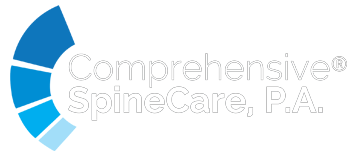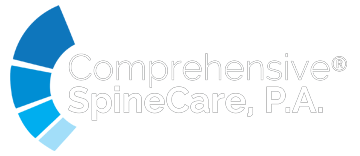If you are one of the millions of people who suffer from back pain, you know how debilitating it can be. You may be wondering if there is a permanent solution to your problem. Or, you may be looking for a temporary fix while you weigh your treatment options. In this blog post, we will discuss both temporary and permanent solutions to back pain. We will start with temporary treatments, such as spinal injections, nerve stimulation, and medications. Then, we will discuss permanent solutions, such as spinal surgery. We will also discuss the pros and cons of each type of treatment.
If you are suffering from back pain, it is important to consult with a qualified healthcare provider. They will be able to discuss your specific case and recommend the best treatment option for you. Treatment options will vary depending on the cause of your back pain. In some cases, a combination of treatments may be necessary to provide relief.
Temporary Back Pain Solutions
Spinal Injections

Spinal injections are a common temporary treatment for back pain. They can be used to diagnose the source of pain, as well as provide relief. There are several types of spinal injections, including:
- Epidural steroid injections: These are injected into the space around the spinal cord and can help reduce inflammation.
- Facet joint injections: These are injected into the joints that connect the vertebrae. They can help reduce pain and inflammation.
- Trigger point injections: These are injected into muscle knots that can cause pain.
Nerve Stimulation
Nerve stimulation is another common temporary treatment for back pain. It involves sending electrical impulses to the nerves to help reduce pain. Nerve stimulation can be done using:
- Transcutaneous electrical nerve stimulation (TENS): This involves placing electrodes on the skin to send electrical impulses to the nerves.
- Spinal cord stimulation: This involves implanting a device that sends electrical impulses to the spinal cord.
Medications
Medications are also a common treatment for back pain, although not all medications are recommended for prolonged use. They can be used to help reduce pain, inflammation, and muscle spasms. Commonly used medications include:
- Nonsteroidal anti-inflammatory drugs (NSAIDs): These are available over-the-counter or by prescription. They can help reduce pain and inflammation.
- Muscle relaxants: These can help reduce muscle spasms.
- Narcotics: These are strong pain medications that are available by prescription. They can be used for short-term relief.

Permanent Solution to Back Pain
While temporary treatments can provide relief, they may not be a permanent solution to your back pain. If you are looking for a permanent solution, you may want to consider spinal surgery.
Spinal surgery can be used to:
- Remove a herniated disc: This is a common cause of back pain. A herniated disc occurs when the gel-like center of a disc breaks through the outer layer and presses on the nerves.
- Fuse vertebrae: This involves surgically joining two or more vertebrae. It can be used to treat conditions such as spondylolisthesis.
- Decompress nerves: This involves surgically relieving pressure on the nerves. It can be used to treat conditions such as spinal stenosis.
However, spinal surgery is a major procedure and should only be considered when other treatment options have failed. It is important to discuss the risks and benefits of surgery with your healthcare provider to determine if surgery is right for you. It is also important to note that surgery is generally only effective once an accurate diagnosis is made, since surgery relies on removing the exact cause of your pain. With that being said, surgery may not always be the best option for everyone with back pain.
In Conclusion
In this blog post, we discussed temporary vs. permanent back pain solutions. There are many treatment options available for back pain. The best option for you will depend on the cause of your pain, as well as your overall health. If you are suffering from back pain, be sure to consult with a qualified healthcare provider to discuss your treatment options.










